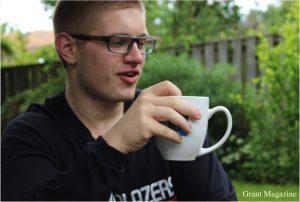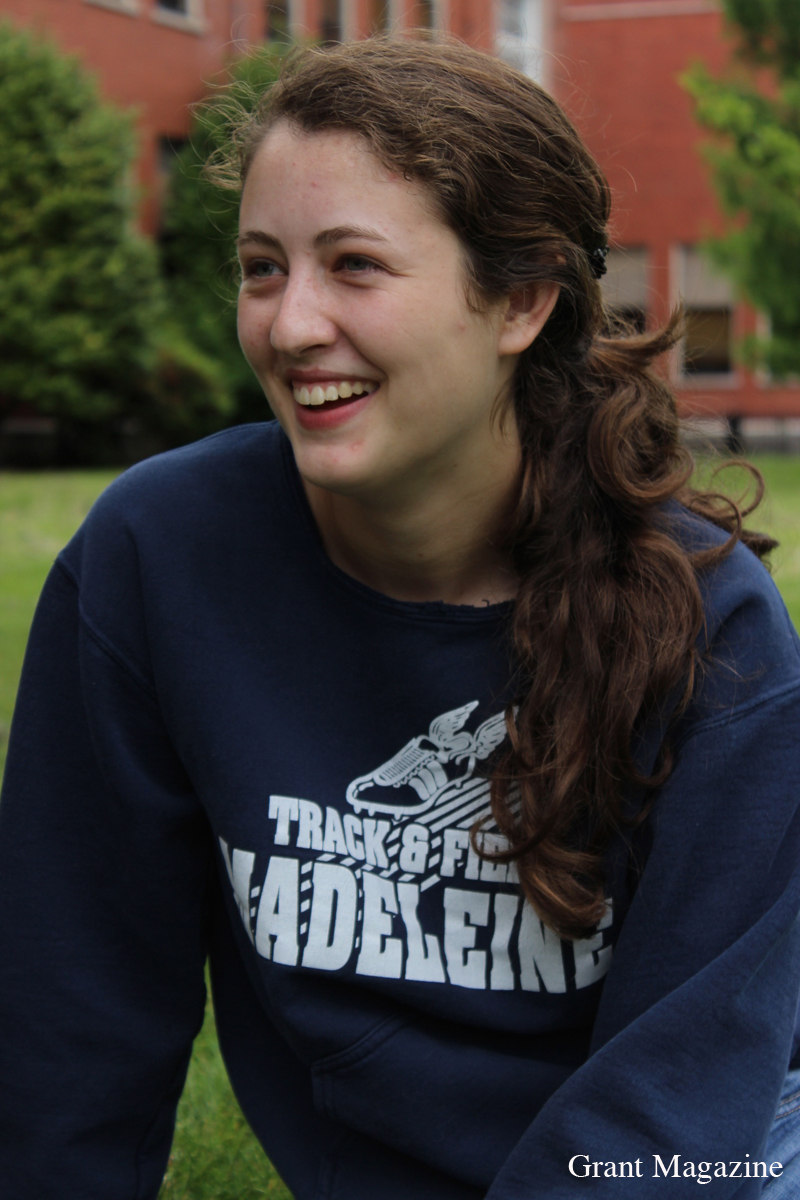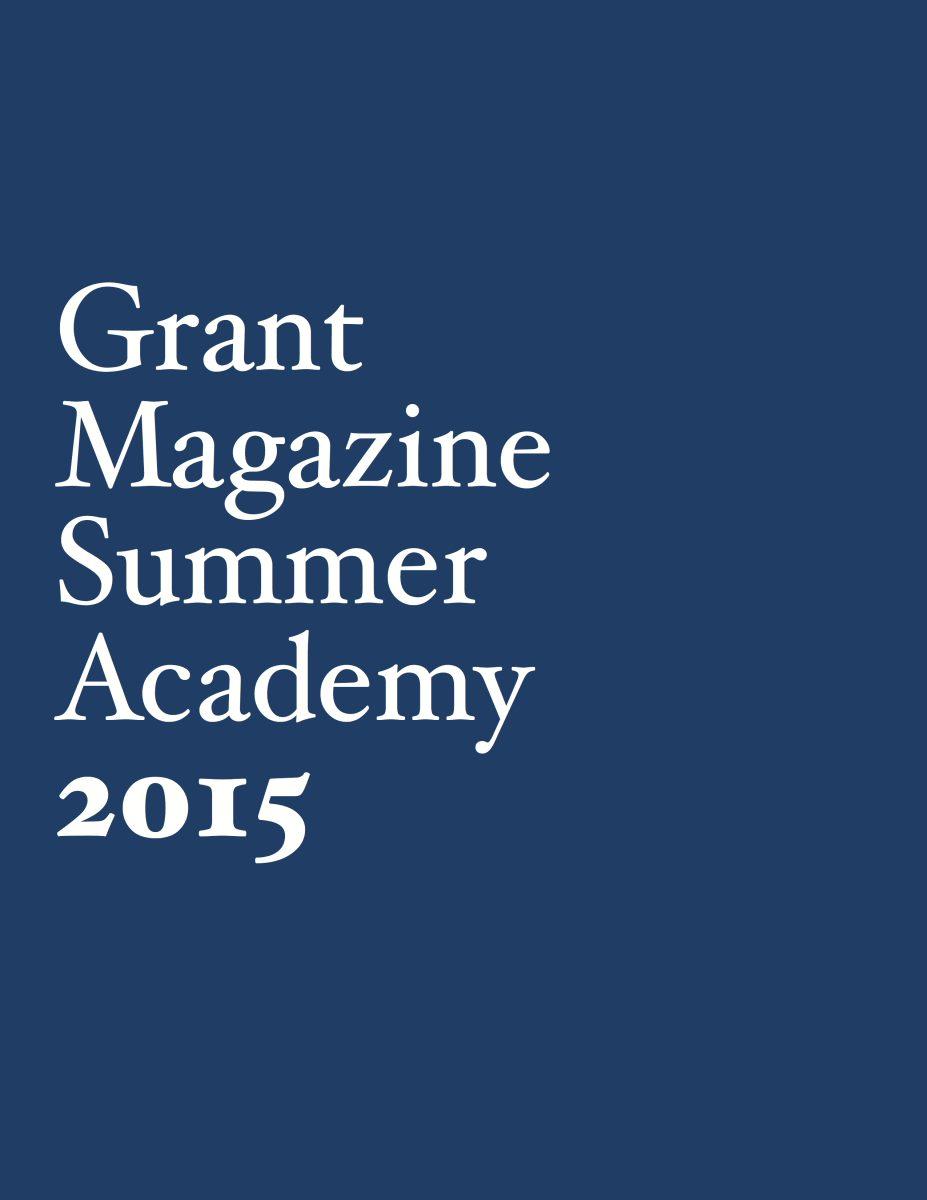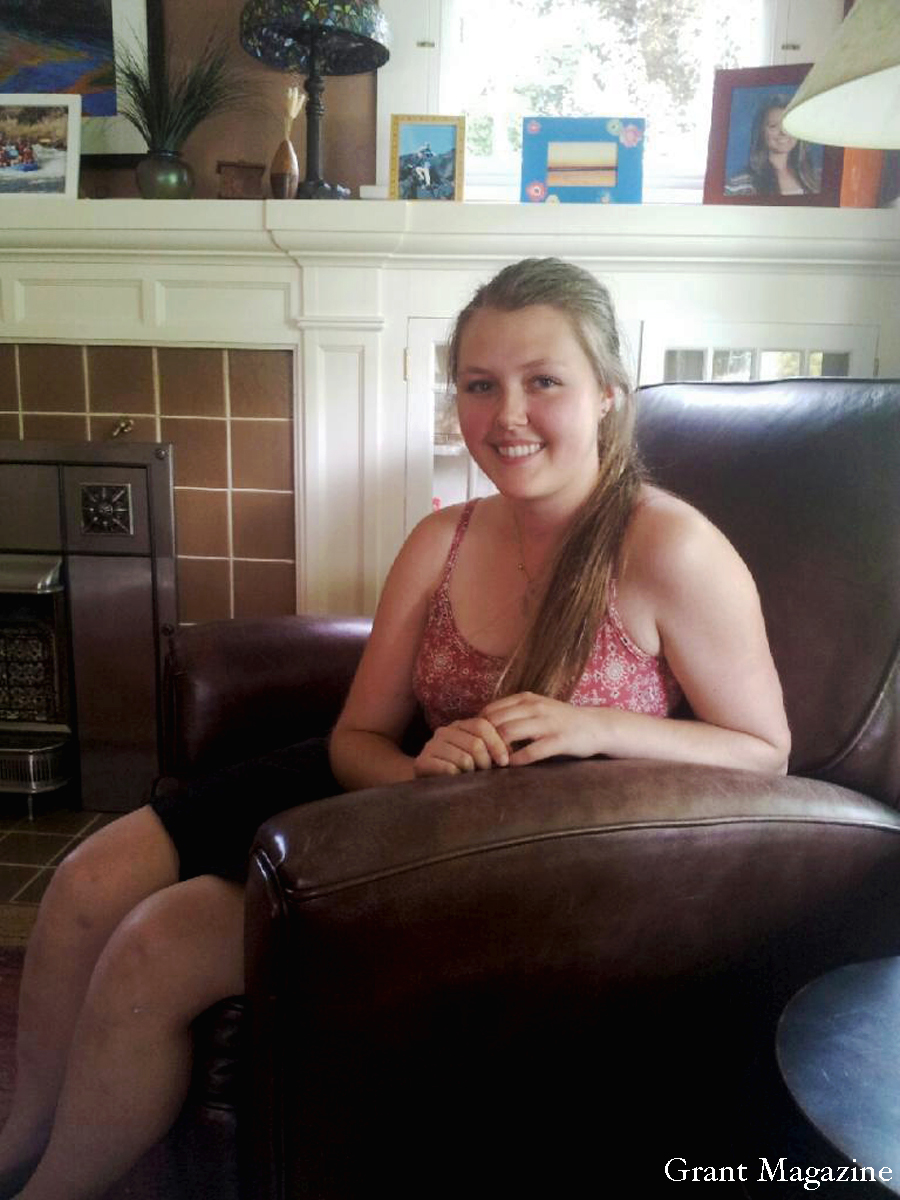Three years ago, the Grant Magazine was born. Evolved from the earlier high school newspaper, it has been thriving and improving ever since. When one chooses to join Grant Magazine, they are not only shouldering a very large commitment, but are also becoming part of a family. In return, being part of Grant Magazine will give the journalist unforgettable life skills that will positively affect them. Over the course of the Magazine’s existence, multiple students have eagerly joined, excited to become part of their soon to be “second-family.” Although the class is constantly growing with new students, there are graduates every year who have to say their goodbyes. We interviewed three daring students who joined Grant Magazine and have since then graduated. Each individual alumnus with their own unique traits talks about how being involved in Grant Magazine helped them.
Nina’s Niche
Heading into high school, Nina Greene was in need of a passion. It took her three years, but she eventually found it within the walls of the Grant Magazine classroom.
Nina Greene is preparing to become a Resident Assistant at the University of Oregon, a job that requires her to keep an eye on the dorms. She will need persistence and confidence, but she’s not worried about lacking those two traits. She has already gained them from her experience on the Grant Magazine.
Graduating from middle school, Greene lacked the feeling of something that made her tick. “Middle school was not a great time for me. I didn’t feel like I fit in very well and I still hadn’t found a niche,” she says. Greene wasn’t yet putting herself out there. She continued that trend by simply going with the flow for her first three years at Grant.
To Greene, Grant was nothing special. She didn’t feel a connection to the school, nor did she truly enjoy it.
Then, her junior year, the thought of joining Grant Magazine entered her mind. The Magazine was established a year prior to her joining its ranks.
She became part of Grant Magazine her senior year due to her love for writing and the urging of her good friend, Emma Decker. That year, she says, she broke out of her shell and dove in, becoming part of the Grant Magazine family, as well as having the opportunity to do what she loved.
“If you want something, just go out and get it. I’m not afraid to do that anymore.” -Nina Greene
She enjoys writing because it gives her freedom, unlike a timed test or work out of a book. “Writing allows you to keep changing it and alter it based on your mood,” Greene explains.
Although she only spent one year as a part of Grant Magazine, she has learned numerous life skills.

Greene says persistence is the most helpful characteristic she gained through Magazine. Because of the constant pressure from Dave Austin, Grant Magazine’s advisor, as well as the pressure to do well for herself, Greene went all out.
She found herself doing things she wouldn’t have done in the years before. “Before Grant Mag I would have never felt comfortable looking up the number of some CEO or the Dean of Admissions of some hard-to-get-into college,” Greene says. “I’m really comfortable now just approaching people and questioning them.”
She became comfortable with challenging people’s perspectives as well as going up to random strangers and insisting they get interviewed. She says she is no longer afraid to do these things as long as it means it will help her be the best journalist she can be.
Today you can find Greene doing a job that she loves, working as a Communications intern for Multnomah County, a job Austin helped her get. “I’m basically doing what I did on Grant Magazine, but I’m getting paid,” she happily explains.
Greene is currently going to the University of Oregon Honors College. She is soon going to take up the role as an R.A., to be there for students in need.
Grant Magazine was a great experience for her and has helped her even after graduating. “If you want something, just go out and get it,” Greene says. “I’m not afraid to do that anymore.”
Picking Up the Phone
Ryan Yambra, editor of the Magazine in its first year, knew he was changing it. After he left, he soon realized that Grant Magazine had changed him.
It’s a usual overcast afternoon in Portland, Oregon. Ryan Yambra is involved in an in-depth conversation. His phone buzzes and he picks it up right away. He then begins to respond to the text while continuing with the conversation. It’s something he has learned to do well through Magazine.
Ryan Yambra used to be a “behind the scenes” kind of guy. Although he was successful throughout middle school to now, he wasn’t always the confident young man he is today. Yambra explains, “I took ‘no’ for an answer a lot more than I do now.” Grant Magazine helped him become the person he proudly is today.
Yambra joined Grant Magazine his senior year. It was the first year of the magazine, yet he was still willing to join without any journalism experience. But just like many of the other new members, he was starting from scratch. “We were kind of going at it blind,” he says.
“It’s a class but it isn’t a class. Whatever it is, it was the most challenging thing I did in high school.” -Ryan Yambra
They didn’t even have a proper classroom to be taught in. Everyone worked together to move things around, paint the walls and bring in all the equipment that was needed. They then threw out everything that they had learned from past English classes, and with the help of Dave Austin, their instructor, taught themselves journalism.
Yambra didn’t once dread going to Magazine class – he didn’t even think of it as a class at all. “It’s a class but it isn’t a class. Whatever it is, it was the most challenging thing I did in high school,” Yambra claims. He knows that it was what prepared him most for college and the “real world.”
 Austin taught Yambra to never take “no” for an answer, one of the things he most struggled with. One of Austin’s most used lines is simply, “Pick up the phone.” What he means is, if someone doesn’t pick up your calls or reply to your emails, you need to keep trying to reach them in every possible way until you succeed. Austin never allowed Yambra to say, “Oh, I couldn’t reach them.” The constant pressure from Austin willed him to be a better communicator.
Austin taught Yambra to never take “no” for an answer, one of the things he most struggled with. One of Austin’s most used lines is simply, “Pick up the phone.” What he means is, if someone doesn’t pick up your calls or reply to your emails, you need to keep trying to reach them in every possible way until you succeed. Austin never allowed Yambra to say, “Oh, I couldn’t reach them.” The constant pressure from Austin willed him to be a better communicator.
Today, Yambra is still using the skills he learned years back from being involved in Grant Magazine. He works for Multnomah County as a Communications employee for Mental Health and Addictions services. He does public relations and is also the Communications Director for Oregon State Senator, Mark Hass.
Yambra does not currently take any writing classes at Willamette University and is instead majoring in Politics. He doesn’t believe there will be the experience that Grant Magazine provided. “I think you learn so much more with experience. You won’t get this challenge from some college class,” he says.
Yambra is a quick responder to anyone trying to reach him and describes himself as “prompt.” He is fearless in social situations and is always picking up the phone, thanks to his Grant Magazine experience.
“BAM!”
Emma Decker is a go-getter who loves to balance more than she can handle. She dove into the Grant Magazine expecting a writing class, but came out with more than just writing skills.
Emma Decker is running through the streets on a sunny day. She is on her way to the Grant Magazine Summer Academy ready to help volunteer her time to teach and mentor kids about reporting. She knows that it’s the most important class she has taken and is ready to give back.
Decker has always loved writing. “When I was in second grade or so, my friends and I would dress up as reporters for Halloween,” Decker says.
When Decker graduated from middle school she loved writing and running, two traits that helped her make her way through high school. Because Decker had always enjoyed writing, her sophomore year of high school she took a journalism class with her friends that allowed her to pursue her love of writing.
Next year when Decker was a junior, Dave Austin, the advisor of the Grant Magazine, walked into her classroom and talked to the class about the new magazine he was starting in Grant. “It wasn’t even a question. I was like, ‘Oh yeah, I am doing this,’” says Decker.
Decker was expecting a simple writing class, but instead, she says, “Grant Magazine gave me a family and a passion. I actually cared about my work.”
But things didn’t start out as planned. “I had a really bad interview with Dave, I guess because I was really nervous and Dave scared me. I don’t even know how I got on the Magazine,” says Decker. But lucky enough she made it on the magazine, and she started working as a reporter. “My first story was just so utterly bad, they just trashed it. The second wasn’t great either—it got cut down and merged with another person’s story,” says Decker.
It wasn’t until the end of semester that one of Decker’s stories got a “Bam.” “Dave just yelled ‘BAM’ and I guess that’s when Dave really, really likes your story. It was a huge turning point for me. It made me feel like I could really be good at it,” says Decker.
“Grant Magazine gave me a family and a passion. I actually cared about my work.” -Emma Decker
As time passed, Decker’s stories continued to get better and better. By senior year Decker was an editor, which meant working long hours from 8 a.m. to 9 p.m. one weekend a month, and 1-2 hours a day plus class time. As an editor, Decker was in charge of editing stories and viewing the magazine to make sure it was error free. “It’s basically a side job. It helped me come out of my shell,” Decker says. But by senior year Decker was ready to leave and move on.
After graduating from Grant, Decker moved all the way to Boston University, where she studied journalism. While she was there she hosted on WTBU, a student-run radio station at Boston University, and created her own podcast called “Raincheck.” “Raincheck was my own mini Grant Magazine,” says Decker.
This next school year she will be transferring to Clark Honors College at the University of Oregon, where she will continue majoring in journalism. “Boston University was too expensive for the experience,” says Decker.
Decker never thought she would be a transfer student, but she is glad she transferred because she can be closer to friends. “Journalism is my career and running is my lifestyle, it’s what keeps me sane,” says Decker.
In her future Decker plans to do some kind of journalism zone like story telling – she wants to have a creative and adventurous job where she can talk to people.
“Grant Magazine has given me confidence, not only because the Magazine has won awards but mostly because I helped build it from the bottom up,” says Decker.
Emma Decker is the type of person who devotes herself to challenges. She is even training for a half-marathon in Montana in July. She says that Grant Magazine gave her drive, focus, determination and courage.




































